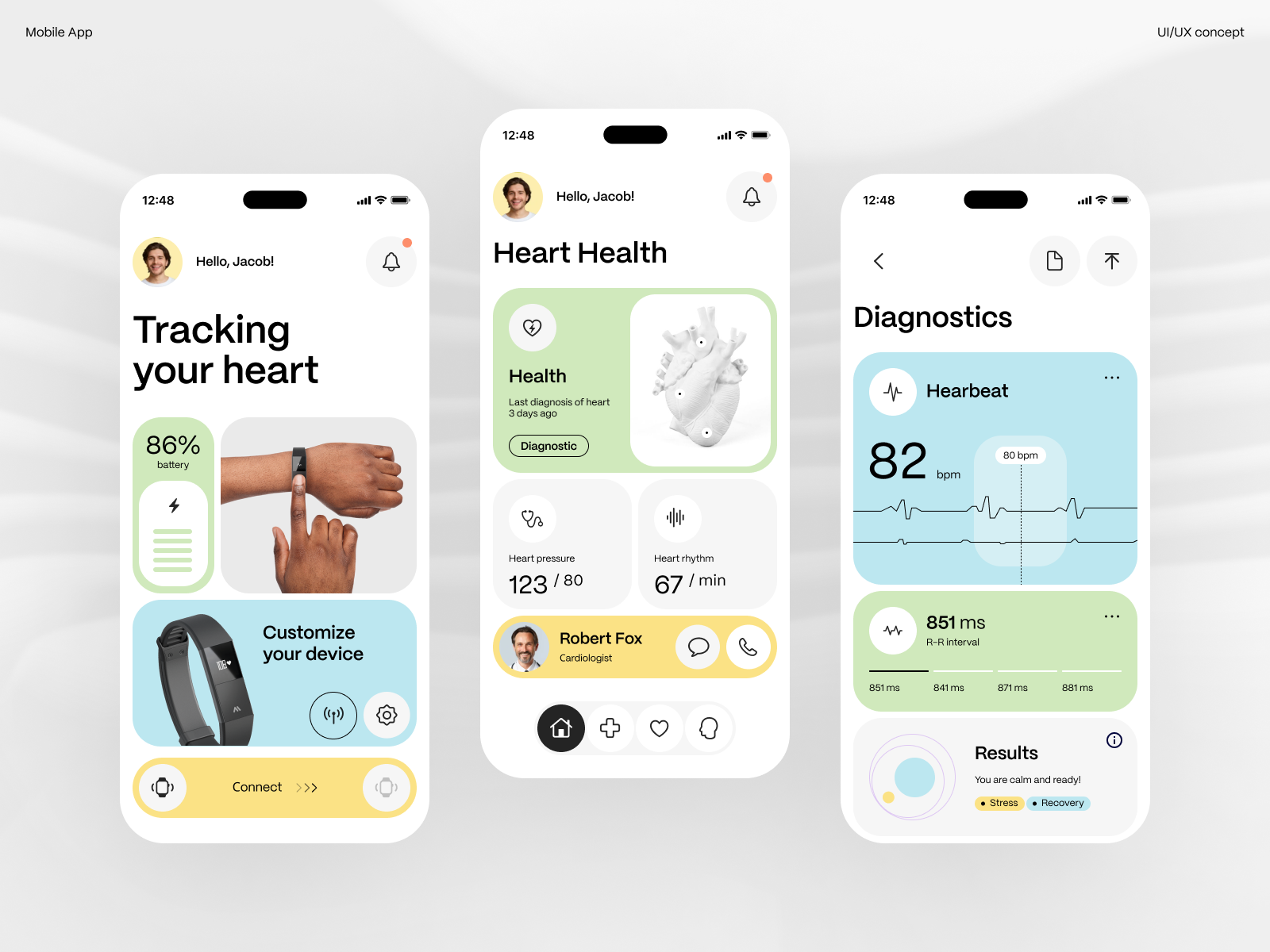Management and Heart Health for Autoimmune Diseases
Living with a chronic illness, particularly autoimmune diseases, can be a frightening challenge. Managing daily symptoms and safeguarding heart health requires a delicate balance. But don’t worry—you’re not alone. This comprehensive guide will walk you through practical strategies for effectively managing your condition while prioritizing your heart health.
Understanding Chronic Illness and Autoimmune Diseases

What Are Autoimmune Diseases?
Autoimmune diseases occur when the body’s immune system mistakenly attacks its tissues. This can lead to various health complications, including chronic inflammation and damage to vital organs. Some common autoimmune diseases include rheumatoid arthritis, lupus, and multiple sclerosis.
The Challenges of Chronic Illness
Managing a chronic illness involves dealing with persistent symptoms, frequent medical appointments, and the emotional toll that comes with long-term health issues. A robust support system and effective coping mechanisms are crucial to maintaining a good quality of life.
Impact on Heart Health
Chronic inflammation from autoimmune diseases can significantly impact heart health. Conditions like lupus and rheumatoid arthritis are often linked to an increased risk of cardiovascular diseases. Understanding this connection is the first step in taking proactive measures to protect your heart.
The Importance of Medication Management
Following Prescription Medication
Medications play a pivotal role in managing chronic illnesses. It’s essential to adhere to your prescribed treatment plan to control symptoms and prevent flare-ups. Skipping doses or stopping medication without consulting your healthcare provider can lead to adverse effects.
Understanding Medication Side Effects
Being informed about the potential side effects of your medications allows you to manage them effectively. Discuss any concerns with your healthcare provider to find suitable alternatives or adjustments to your treatment plan.
Regular Medical Check-ups
Routine medical check-ups are crucial for monitoring the progression of your illness and making necessary adjustments to your treatment plan. These visits allow you to discuss new symptoms or concerns with your healthcare provider.
Nutrition and Chronic Illness Management
Anti-inflammatory Diet

An anti-inflammatory diet can help reduce chronic inflammation associated with autoimmune diseases. Focus on consuming whole foods like fruits, vegetables, lean proteins, and healthy fats. Avoid processed foods, sugary beverages, and excessive alcohol consumption.
Heart-Healthy Foods
Incorporating heart-healthy foods into your diet can significantly benefit your cardiovascular health. Foods rich in omega-3 fatty acids, such as salmon and walnuts, can help reduce inflammation. Additionally, whole grains, berries, and leafy greens are excellent choices for maintaining heart health.
Staying Hydrated
Proper hydration is essential for overall health. Drinking adequate water helps flush out toxins, supports digestion, and keeps your skin healthy. Aim to drink at least eight glasses of water daily, and adjust your intake based on your activity level and climate.
Exercise and Physical Activity
Benefits of Regular Exercise
Regular exercise offers numerous benefits for individuals with chronic illnesses, including improved cardiovascular health, enhanced mood, and increased energy levels. It also helps maintain a healthy weight and reduces the risk of developing other chronic conditions.
Tailoring Exercise to Your Needs
Consult your healthcare provider to create an exercise plan tailored to your needs and limitations. Low-impact activities like swimming, walking, and yoga can be excellent options for managing symptoms without putting too much strain on your body.
Listening to Your Body
Listening to your body and avoiding pushing yourself too hard is essential. If you experience pain or fatigue, take a break and allow your body to rest. Gradually increasing the intensity and duration of your workouts can help build endurance without causing harm.
Stress Management Techniques
The Link Between Stress and Chronic Illness
Stress can exacerbate symptoms of chronic illnesses and negatively impact heart health. Learning effective stress management techniques is crucial for maintaining overall well-being and reducing the risk of flare-ups.
Mindfulness and Meditation

Mindfulness and meditation practices can help reduce stress and promote relaxation. Techniques like deep breathing, progressive muscle relaxation, and guided imagery can calm your mind and body, making it easier to cope with daily challenges.
Engaging in Hobbies
Engaging in hobbies and activities you enjoy can provide a much-needed distraction from the stress of managing a chronic illness. Whether painting, gardening, or reading, finding time for activities that bring you joy can improve your mental health and overall quality of life.
Building a Support System
The Role of Family and Friends
Having a solid support system is vital for individuals with chronic illnesses. Family and friends can provide emotional support, help with daily tasks, and offer encouragement during difficult times. Don’t hesitate to lean on your loved ones for assistance and understanding.
Joining Support Groups
support groups can connect you with others going through similar experiences. Sharing your challenges and successes with people who understand can provide a sense of community and reduce feelings of isolation.
Looking for Expert Assistance
If you find it challenging to cope with the emotional aspects of your illness, consider seeking professional help from a therapist or counselor. They can provide strategies for managing stress, anxiety, and depression and help you develop a positive mindset.
Monitoring and Managing Symptoms
Keeping a Symptom Journal
Keeping a symptom journal can help you track patterns and identify potential triggers for flare-ups. Note any changes in your symptoms, medications, diet, and activities. This information can be valuable during medical appointments and help your healthcare provider make informed decisions about your treatment plan.
Recognizing Early Warning Signs
Recognizing early warning signs of a flare-up can help you take proactive measures to prevent it from worsening. Common signs include increased pain, fatigue, and changes in mood or appetite. Contact your healthcare provider for guidance if you notice any of these symptoms.
Developing an Action Plan
Work with your healthcare provider to develop an action plan for managing flare-ups. This plan should include steps to take when symptoms worsen, such as adjusting medications, incorporating rest, and seeking medical attention if necessary.
The Role of Technology in Chronic Illness Management
Health Monitoring Apps

Health monitoring apps can help you track various aspects of your condition, including medications, symptoms, and physical activity. These apps can also provide reminders for taking drugs and attending medical appointments, making staying on top of your health more accessible.
Telehealth Services
Telehealth services offer a convenient way to access medical care from the comfort of your home. Virtual appointments can save time and reduce the need for travel, making it easier to manage your condition and stay connected with your healthcare provider.
Online Communities
Online communities and forums provide a platform for individuals with chronic illnesses to share their experiences, seek advice, and offer support to others. Joining these communities can help you stay informed about the latest developments in chronic illness management and connect with people who understand your challenges.
Exploring Alternative Therapies
Acupuncture
Acupuncture is an alternative therapy that involves inserting thin needles into specific points of the body. Some individuals with chronic illnesses find relief from symptoms through acupuncture, particularly for pain management and stress reduction.
Massage Therapy
Massage therapy can help alleviate muscle tension, reduce pain, and promote relaxation. It can be particularly beneficial for individuals with chronic pain conditions and those experiencing stress-related symptoms.
Herbal Remedies
Herbal remedies and supplements may offer additional support for managing chronic illness symptoms. However, it’s essential to consult with your healthcare provider before incorporating new supplements into your routine to ensure they are safe and suitable for your condition.
The Importance of Self-Care
Prioritizing Rest
Adequate rest is essential for managing chronic illnesses and maintaining overall health. Listen to your body and ensure you get enough sleep each night. Short naps during the day can also help combat fatigue and boost energy levels.
Practicing Self-Compassion
Living with a chronic illness can be challenging, and it’s important to practice self-compassion. Be kind to yourself and acknowledge that managing your condition takes effort and resilience. Celebrate your successes, no matter how small, and give yourself grace during difficult times.
Setting Realistic Goals
Setting realistic goals can help you stay motivated and focused on your health and well-being. Break larger goals into smaller, manageable steps and celebrate your progress. Adjusting your goals as needed based on your current health and circumstances is okay.
Conclusion
Managing a chronic illness, especially when coupled with autoimmune diseases and heart health concerns, requires a multifaceted approach. By understanding your condition, following prescribed treatments, prioritizing nutrition and exercise, managing stress, and building a solid support system, you can take control of your health and improve your quality of life.
Remember, you’re not alone on this journey. Reach out to your healthcare provider, join support groups, and explore available resources to help you navigate the challenges and triumphs of living with a chronic illness. Together, we can work towards a healthier, happier future.
